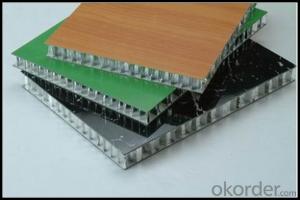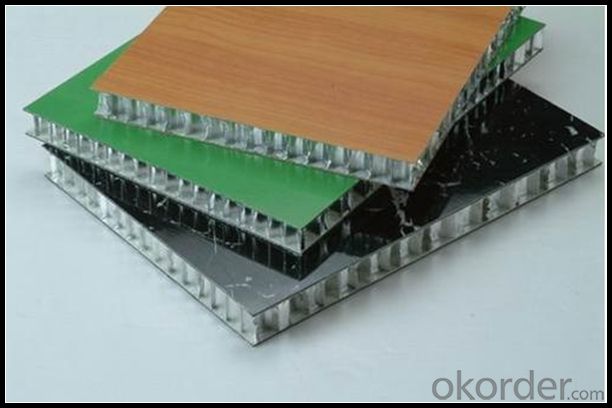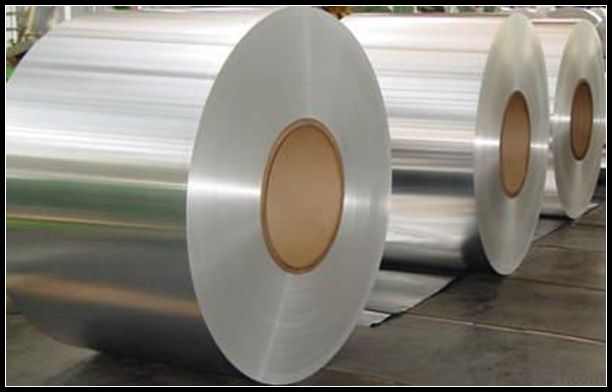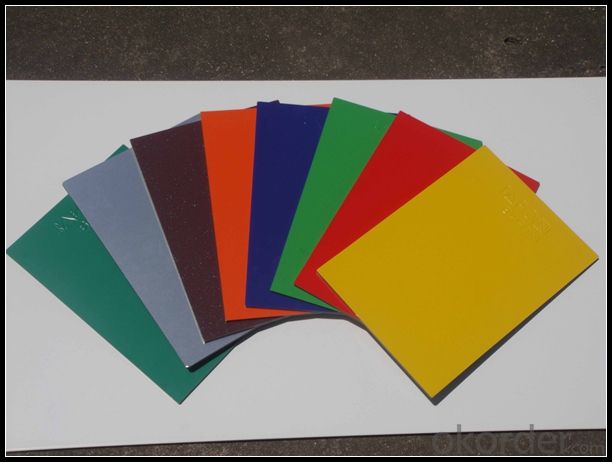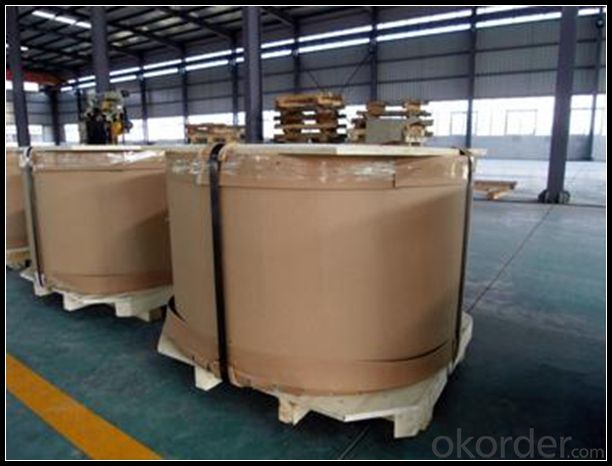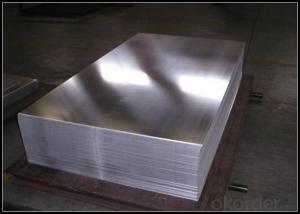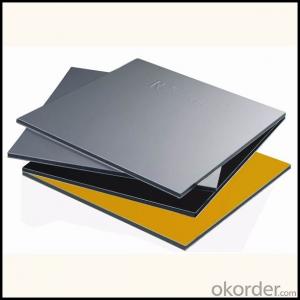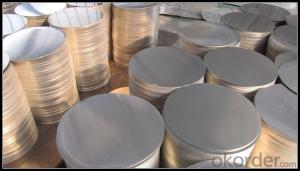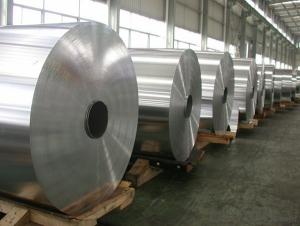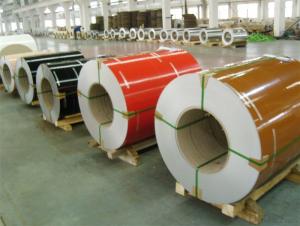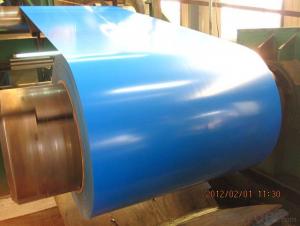Red Aluminum Coil Stock AA1050 H14 - Color Coated Aluminum Coil from China Famous Company
- Loading Port:
- Qingdao
- Payment Terms:
- TT OR LC
- Min Order Qty:
- 3 m.t.
- Supply Capability:
- 2000 m.t./month
OKorder Service Pledge
OKorder Financial Service
You Might Also Like
Specification
Thickness | 0.1mm-8mm |
Popular Thickness | 0.1mm/0.2mm/0.25mm/0.3mm/0.6mm/0.8mm/1.0mm/1.2mm/1.5mm/2.0mm/3.0mm |
Width | 20mm-2500mm |
inner diameter | 76mm / 152mm |
Material | AA1050, AA1060, AA1070, AA1100, AA1235, AA3003, AA3004, AA3005, AA5052, AA5005, AA5754, AA5083, AA8011, AA8079, etc |
Temper | O,H12,H14,H16,H18,H22,H24,H26,H32,H34,H36,H38, |
Surface | Mill finish / Coated |
Packing | Export standard wooden pallets |
Payment Terms | 100% irrevocable L/C at sight or 30% T/T in advance as deposit,70% balance against the B/L copy |
Minimum Order Quantity | 5000kg |
Delivery time | 30-35 days after the receiving L/C or deposit |
2. Application of
(1) Interior: wall cladding, ceilings, bathrooms, kitchens and balconies, shutters, doors, windows,
(2) Exterior: wall cladding, facades, roofing, canopies, tunnels,column covers , renovations.
(3).Advertisement: display platforms, signboards, fascia, shop fronts.
3. Feature of
Aluminum sheet specifications:
1) Alloy : 1050 1060 1070 1100 2024 3003 3004 3105 3A21 5005 5052 5083 5754 5182 5454 5456 6061 6063 7075 8011 etc
2) Temper: O/H12/H14/H1/H18/H32/H34/H36/H38//H111/H112/H116/H321/T6/T651/T3/T351 etc
3) Thickness: 0.1mm to 300mm
4) Width:20mm to 3300mm
5)Length: ≤ 12000mm
6) Protective film can be added
7) Production Line: DC and CC production line
4. Certificate:
SGS and ROHS (if clients request, paid by client), MTC (plant provided), Certificate of Origin (FORM A, FORM E, CO), Bureau Veritas (if client request, paid by client), CIQS certificate and so on.
5. Image of Aluminum sheets
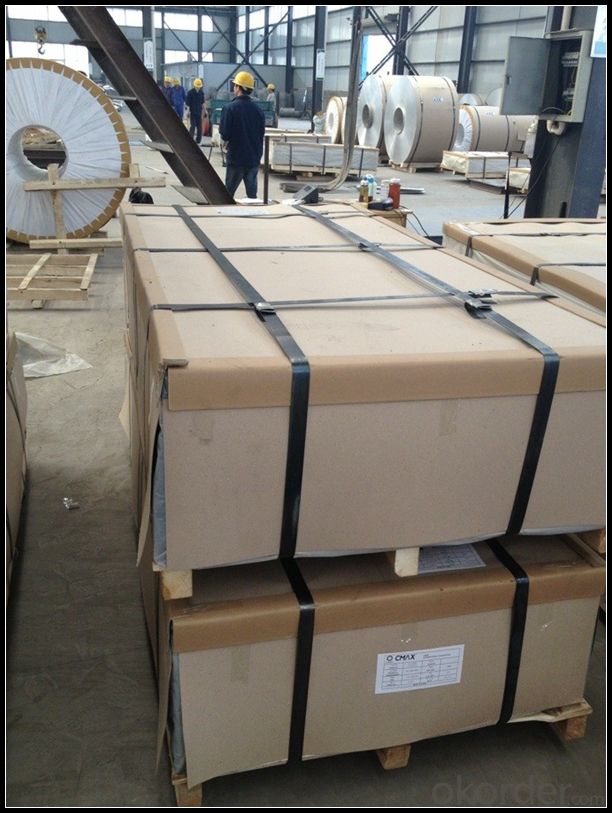
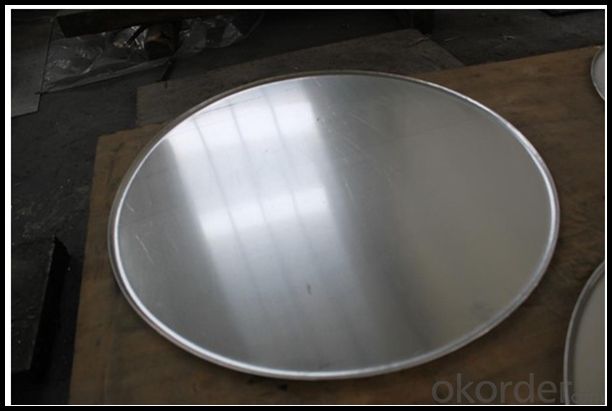
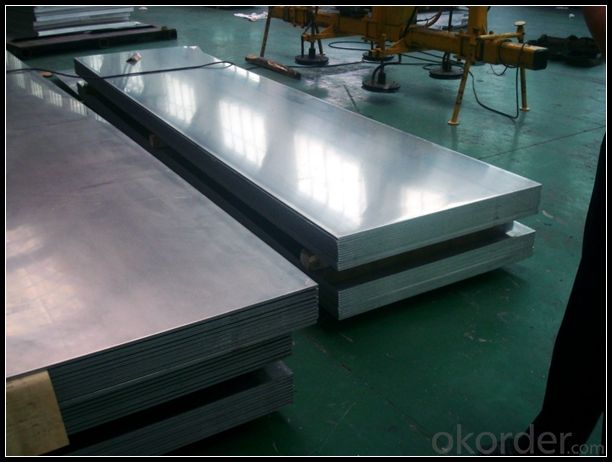
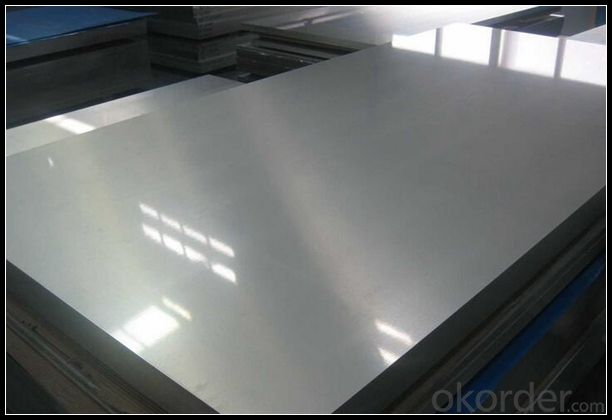
6. Package and shipping of
Eye to wall
Eye to the wall
With wooden pallet (wooden case also available)
7. FAQ
1) What is the delivery time?
Depends on actual order, around 30 to 35 days
2) What is the QC system?
We have QC staff of 20 persons and advanced equipment, each production is with MTC traced from Aluminum ingot lot.
3) What market do you mainly sell to?
Australia, America, Asia, Middle East, Western Europe, Africa etc
- Q: What are some common types of aluminum coils used in various industrial applications?
- <p>Yes, there are several types of aluminum coils commonly used in industry. These include: 1) Plain aluminum coils, which are used in packaging and construction. 2) Embossed aluminum coils, utilized for decorative purposes and in the automotive industry. 3) Painted aluminum coils, often used in building materials and appliances. 4) Galvanized aluminum coils, which are corrosion-resistant and used in exterior applications. 5) Heat-treated aluminum coils, known for their strength and used in aerospace and automotive parts. Each type serves specific purposes based on the properties of the aluminum and the coatings or treatments applied.</p>
- Q: Can aluminum coils be welded or joined?
- Yes, aluminum coils can be welded or joined. Aluminum is a highly weldable metal and can be easily joined using various welding techniques. The most common methods of welding aluminum coils include TIG (Tungsten Inert Gas) welding, MIG (Metal Inert Gas) welding, and resistance welding. TIG welding is a precise and versatile technique that uses a non-consumable tungsten electrode to create the arc. It is widely used for welding aluminum coils as it provides excellent control over the welding process, ensuring high-quality and strong welds. MIG welding, on the other hand, uses a consumable wire electrode and a shielding gas to protect the weld zone from atmospheric contamination. This method is faster than TIG welding and is often preferred for larger production runs. Resistance welding is another common method used to join aluminum coils. It involves passing an electric current through the overlapping metal surfaces to create heat and pressure, resulting in a strong weld joint. This technique is often used in industries where high-speed production is required. It is worth noting that welding aluminum coils requires specific techniques and considerations due to the metal's unique properties. Aluminum has a lower melting point and higher thermal conductivity compared to other metals, which can make it more challenging to weld. Proper cleaning, preheating, and selection of appropriate filler materials are crucial for achieving successful welds. In summary, aluminum coils can be welded or joined using various techniques such as TIG welding, MIG welding, and resistance welding. However, it is essential to follow proper procedures and consider the specific properties of aluminum to ensure strong and reliable welds.
- Q: Is it safe to use aluminum foil to wrap food for cooking purposes?
- <p>Yes, you can use aluminum foil to wrap food for cooking. Aluminum foil is commonly used for wrapping, baking, and cooking food in the oven, grill, or on the stovetop. It helps retain moisture, prevents food from sticking, and can be used to create a sealed environment for steaming or baking. However, it's important to avoid using aluminum foil at very high temperatures as it can react with acidic or alkaline foods and potentially leach aluminum into the food. Always follow the manufacturer's guidelines for safe use and cooking temperatures.</p>
- Q: Can aluminum coils be used in the production of aluminum composite walls?
- Yes, aluminum coils can be used in the production of aluminum composite walls. Aluminum composite walls are typically made by sandwiching a layer of polyethylene between two aluminum sheets. The aluminum coils are first processed to form flat aluminum sheets, which are then used as the outer layers of the composite wall. The coils are unrolled and flattened during the manufacturing process to create the desired width and thickness of the aluminum sheets. These aluminum sheets offer excellent strength, durability, and weather resistance, making them ideal for use in aluminum composite walls. Additionally, the use of aluminum coils allows for efficient and cost-effective production, as they can be easily processed and formed into the required dimensions.
- Q: How do aluminum coils contribute to the corrosion resistance of products?
- Aluminum coils contribute to the corrosion resistance of products in several ways. Firstly, aluminum itself is a highly corrosion-resistant material due to its natural oxide layer that forms on its surface when exposed to oxygen. This oxide layer acts as a protective barrier, preventing further oxidation and corrosion. When aluminum is formed into coils, it offers additional advantages for corrosion resistance. The coil form allows for a more uniform distribution of the material, ensuring that the protective oxide layer covers the entire surface area of the product. This helps to prevent localized corrosion and ensures a more consistent level of corrosion resistance across the entire product. Moreover, aluminum coils can also be coated with various protective coatings or treatments to enhance their corrosion resistance further. These coatings can provide an additional layer of protection against environmental factors such as moisture, chemicals, and UV radiation, which can accelerate corrosion. Additionally, aluminum coils are often used in combination with other materials in products, such as galvanized steel or stainless steel. These combinations, known as bimetallic or trimetallic products, take advantage of the different properties of each material to enhance corrosion resistance. For example, the aluminum layer can act as a sacrificial anode, corroding preferentially to protect the underlying material from corrosion. In summary, aluminum coils contribute to the corrosion resistance of products due to the inherent corrosion resistance of aluminum, the uniform distribution of the material in coil form, the possibility of applying protective coatings, and the use of bimetallic or trimetallic combinations. These factors help to ensure that products made with aluminum coils have a longer lifespan and are better protected against corrosion in various environments.
- Q: Are there any certifications or standards for aluminum coils?
- Yes, there are certifications and standards for aluminum coils. The most widely recognized certification for aluminum coils is the Aluminum Association's Certification Program. This program ensures that the aluminum coils meet specific quality and performance standards set by the association. Additionally, there are various standards and specifications set by organizations such as ASTM International, the American Society of Mechanical Engineers (ASME), and the International Organization for Standardization (ISO) that govern the manufacturing and performance of aluminum coils. These standards cover aspects such as the chemical composition, mechanical properties, and dimensional tolerances of the coils, ensuring that they meet the required industry standards.
- Q: What are the different ACP (Aluminum Composite Panel) applications for aluminum coils?
- Some of the different applications for aluminum coils in Aluminum Composite Panels (ACP) include building facades, signage, interior decoration, cladding, and insulation. The versatility and durability of ACP make it suitable for a wide range of architectural and construction projects.
- Q: How do aluminum coils contribute to reduced maintenance costs?
- Aluminum coils contribute to reduced maintenance costs primarily due to their exceptional durability and resistance to corrosion. Unlike other metals, such as copper, aluminum coils are specifically designed to withstand harsh environmental conditions, including exposure to moisture, salt, and chemicals. This resistance to corrosion ensures that the coils remain intact and functional for extended periods, minimizing the need for frequent repairs or replacement. Additionally, aluminum coils are lightweight, making them easier to handle and install, which reduces labor costs associated with maintenance activities. Furthermore, their high thermal conductivity allows for efficient heat transfer, resulting in increased energy efficiency and lower utility bills. Overall, the use of aluminum coils in HVAC systems helps to reduce maintenance expenses and prolong the lifespan of the equipment, making them a cost-effective choice for both residential and commercial applications.
- Q: Are there any special considerations for handling and storing aluminum coil scraps?
- There are specific factors to take into account when it comes to the handling and storage of aluminum coil scraps. To start with, it is crucial to handle these scraps with caution in order to prevent any potential injuries. Due to their sharp edges, workers should wear appropriate protective gear, such as gloves and safety glasses, while dealing with them. When it comes to storing aluminum coil scraps, it is of utmost importance to keep them in a dry and well-ventilated area. Moisture can cause corrosion in the aluminum, leading to the degradation of the material. To prevent this, it is recommended to store the scraps in a covered area or utilize moisture-absorbing materials. Moreover, it is essential to separate aluminum coil scraps from other materials, particularly those that can result in a chemical reaction or contamination. This is especially important if the aluminum coil scraps have been coated or treated with other substances. Furthermore, it is advisable to stack and store the aluminum coil scraps properly to avoid any damage or accidents. By stacking them in a stable manner and using appropriate equipment like pallets or racking systems, the risk of collapse or shifting can be minimized. Lastly, it is crucial to adhere to local regulations and guidelines regarding the handling and storage of aluminum coil scraps. These regulations may differ depending on the location and industry, so it is vital to stay informed and comply with any specific requirements. By taking these considerations into account, companies can ensure the secure handling, storage, and preservation of aluminum coil scraps, thereby reducing the possibility of accidents, damage, and deterioration.
- Q: Can aluminum coils be used in high-altitude environments?
- Yes, aluminum coils can be used in high-altitude environments. Aluminum is known for its lightweight and corrosion-resistant properties, which make it suitable for various applications, including those in high-altitude environments. Additionally, aluminum has a high strength-to-weight ratio, allowing it to withstand the challenges posed by high altitudes.
Send your message to us
Red Aluminum Coil Stock AA1050 H14 - Color Coated Aluminum Coil from China Famous Company
- Loading Port:
- Qingdao
- Payment Terms:
- TT OR LC
- Min Order Qty:
- 3 m.t.
- Supply Capability:
- 2000 m.t./month
OKorder Service Pledge
OKorder Financial Service
Similar products
Hot products
Hot Searches
Related keywords
